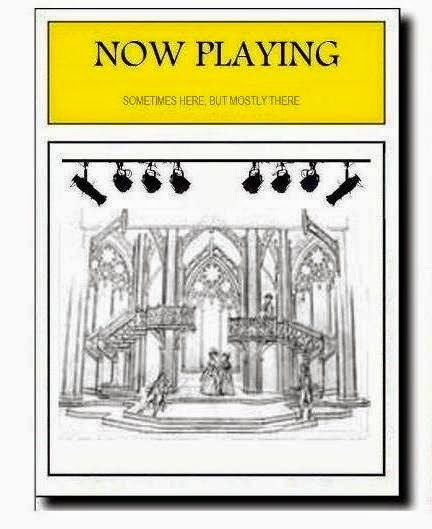For the record, along with writing and
directing plays, over the years I have been employed as a Drama Critic – first
for a newspaper chain, later on television, and finally on the internet. As a
result, I’ve sat on both sides of that issue, and have a few thoughts I’d like
to pass along to the unenlightened.
First, there is
the question of qualification – what exactly qualifies someone – anyone – to
judge a play and publicize an opinion? The answer is simple; someone pays them
to do it. That’s it. Period. They receive money or free tickets or trips or
booze or SOMETHING that authorizes them to do what they do. For major newspapers,
a degree in journalism gets you in the door, and allows you to weigh the
relative values of a Shakespeare presentation, a sheep shearing demonstration,
and a pie eating contest with the same creditability. In other places – say
Columbus Ohio – the only apparent qualifications are that you have actually seen a play, can spell most of the words
in your review correctly, and occasionally place one coherent thought behind
another.
So. Now that we
understand qualifications, let’s go on to TYPE. Did you know there are two and
a half types of Drama Critics? There are. To use the broadest definition
possible, they are as follows. First, there is the Reviewer. This person
literally views something and reports it in order – this happened, then this
happened, rhen this happened, blah blah blah. Next comes the Drama Critic. This
person critiques, that is, gives an
assessment of what is seen – this is good, this is not. This judgment is based
solely on the Critic’s own standards of good and bad. And there’s nothing wrong
with that. Eventually you learn how they feel about this or that, and reach
your own conclusions accordingly. It’s a system that has worked well for
thousands of years, and what you actually read SHOULD BE a combination of both
of these types.
Now we go on to
the bastard child of drama. This individual substitutes criticism for critique.
Three factors contribute to this fall from grace. First, there only a limited
number of ways you can give a favorable report. After a while you have used
every adjective in your repertoire, and – to you – it all starts looking the
same. Second, you become jaded. Even good drama, if you see it day in and day
out, is right up there with watching dish water. Only the bazaar makes an
actual impression on your fevered psyche. And third, with no one to tell you
otherwise, you begin to actually believe you are as clever, witty, and knowledgeable
as the hype built around you. If the ways to praise a play are limited, there
are boundless ways to tear that same work to shreds, and make yourself look
like the all powerful Oz in the process. What is even sadder is the fact that
the system works. The deeper the cut, the more power you wield over people with
no readily available voice with which to respond.
